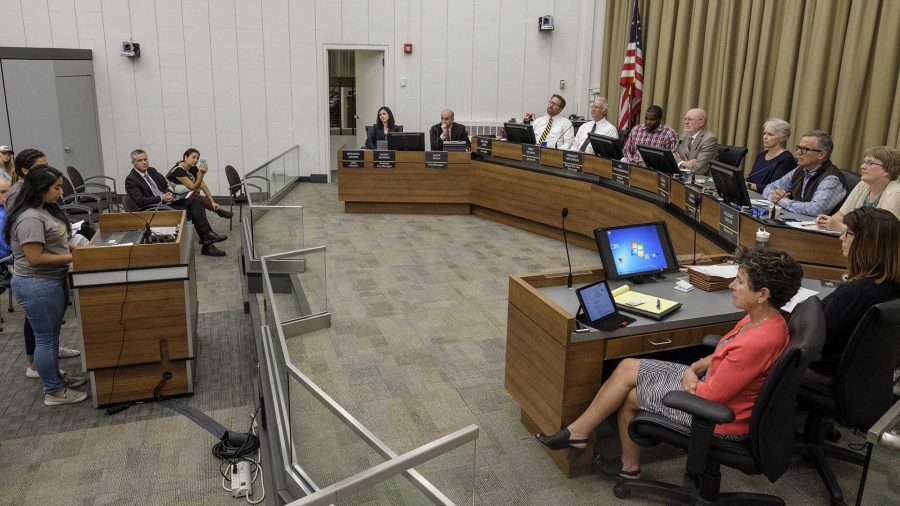A Native American student and UI professor discuss changing Columbus Day to Indigenous People’s Day.
Manny Alfano of the Italian American One Voice Coalition believes that critics of Columbus Day “are judging a 15th-century explorer by 21st-century standards.” And as a historian, I see his point.
Christopher Columbus, the Genoese explorer, was born in 1451, well before Italy became a nation and at a time when his Spanish benefactors, Queen Ferdinand and Isabella, were engaged in a centuries-long struggle for the Iberian Peninsula, the so-called Reconquista. Religious wars between Catholics and Muslims, combined with widespread anti-Semitism, meant that religious bigotry was commonplace.
In 1492, soon after he arrived on the island he named Hispañiola, Columbus kidnapped and enslaved more than 1,000 natives. In letters to his Spanish benefactors, Columbus emphasized that the Taíno “were well built, with very handsome bodies.” He predicted that they would be easy to conquer and enslave, because “they do not carry arms or know them.” When the Taíno did fight back, Columbus used terror to subdue them. Columbus also brutalized his own people; he once bragged about cutting off the tongue of a woman who had the audacity to remind him that his parents had been humble weavers. The sad reality behind all of these facts is that Columbus was very much a reflection of his time and place.
As a non-Native professor of American Indian history, I believe that Columbus Day should be replaced so that Americans might finally reckon with its tragic past. Indigenous Peoples’ Day is not an affront to Italian Americans. Rather, it is part of an effort to create a usable past. The vast majority of monuments to Columbus were erected in the first decades of the 20th century in response to intensive lobbying efforts by Italian immigrants. At the same time, the U.S. commitment to cultural genocide, through boarding schools, the suppression of Native American religions, and other limits on tribal sovereignty were in full swing. Richard Henry Pratt, the headmaster of the nation’s premier boarding institution, Carlisle Academy, intoned that Americans must “kill the Indian” if they hoped to “save the man.”
— Stephen Warren,
Associate professor, History & American Studies
As a Native student at the University of Iowa, I understand Russell Means’ anger. Growing up, I listened to the stories of my people — the Navajo and Menominee — tell stories that emphasized the colonization of our lands and the relocation of my people. Celebrating Columbus Day means the pain and suffering of my people can be easily overlooked. My relatives have served in the U.S. military for generations, from World War I to present. Replacing Columbus Day with Indigenous Peoples’ Day does not diminish military veterans’ service. Rather, Indigenous Peoples’ Day is both a remembrance and a celebration of the indigenous people who went through centuries of suffering and oppression only to have their histories erased by celebrating Christopher Columbus.
That 567 federally recognized tribes remain in the United States today is a testament to Native people’s resilience. Indigenous Peoples’ Day is a small step toward a new understanding of American history, one predicated on the acceptance of difference in all its forms. The beliefs and values of a 15th-century conquistador should be cast aside. Let’s leave the violence, terror, and bigotry that was commonplace in Columbus’ time behind us.
Embracing Indigenous People’s Day is a necessary step toward the acknowledgment of our tragic past and our shared commitment to a better future. Supporting Indigenous Peoples’ Day here at the University of Iowa will let the Native community on campus know that their voices are being heard by their non-Native allies.
— Adriana Peterson
(Navajo and Menominee)



